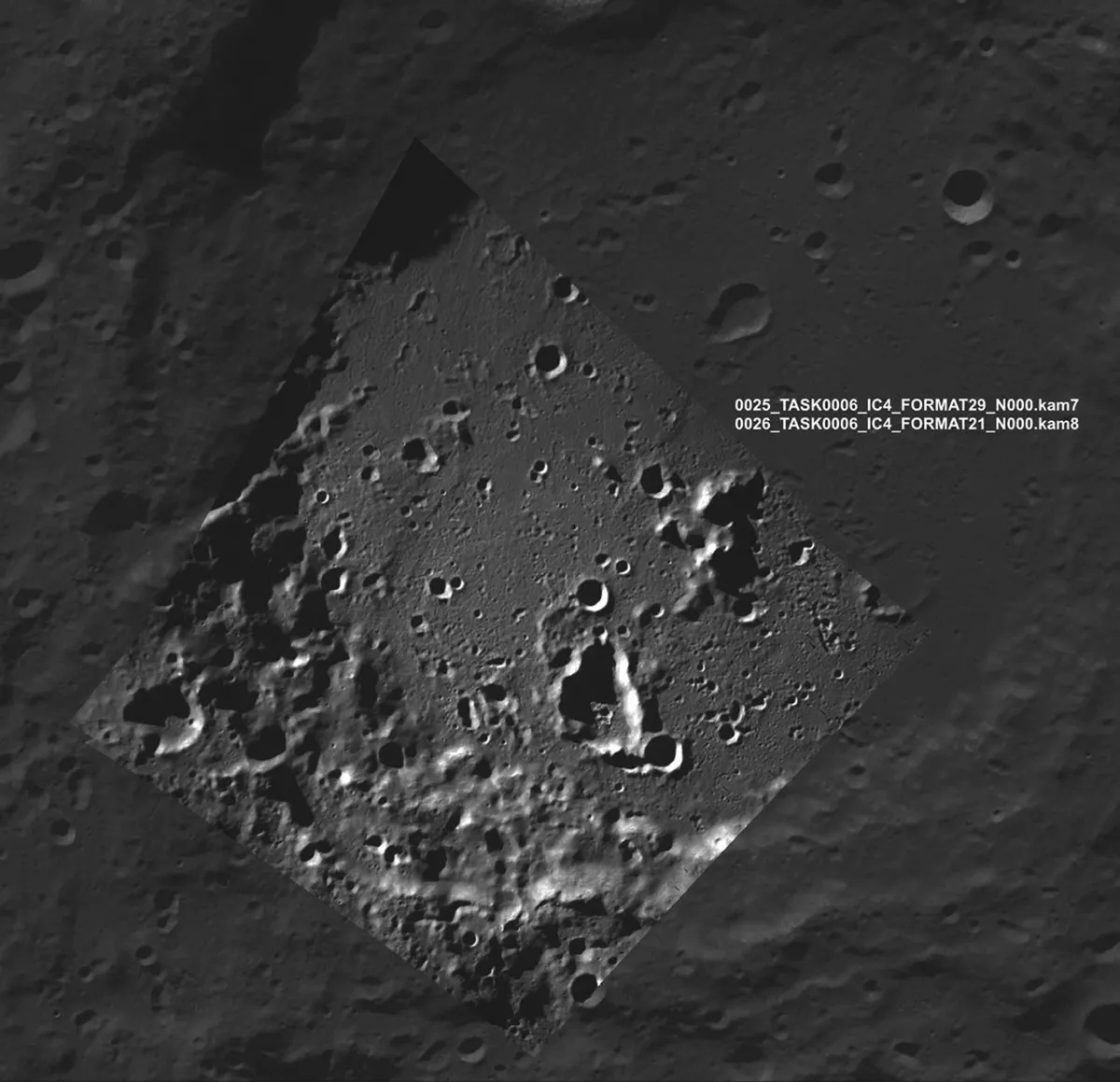Russia’s first lunar mission in nearly half a century ended in failure as the Luna-25 spacecraft lost control and crashed onto the moon’s surface following complications during its pre-landing orbit preparation.
In a statement released on Sunday, Russia’s Roscosmos space agency indicated that a disparity between the actual and calculated parameters of the propulsion maneuver caused the spacecraft to enter an unintended orbit, leading to its collision with the lunar surface and subsequent loss.
A dedicated inter-departmental commission has been convened to investigate the factors contributing to the Luna-25 craft’s demise.
On August 11, a Soyuz rocket propelled the Luna-25, a moderately sized robotic lander, into Earth’s orbit from the Vostochny cosmodrome located in Russia’s far eastern region. The plan was for it to transition to lunar orbit by August 16 and then make an attempt at landing on the moon’s southern pole on August 21.
This Luna-25 mission by Roscosmos marked the inaugural entry in a series of lunar expeditions from Russia since the launch of Luna-24 back in 1976.
Weighing in at 1.8 tonnes and furnished with 31 kg (68 pounds) of scientific instruments, the Luna-25 was designed to retrieve rock samples from depths of up to 15 cm (6 inches) utilizing a scoop. These samples held the potential to be scrutinized for traces of frozen water—a vital resource that could potentially sustain human life.
The development of this mission spanned several years and coincided with a period when the Kremlin sought to employ space exploration as a means to signify Russia’s resurgence as a global power. This move was undertaken amidst what the government refers to as a “special military operation” in Ukraine.
In April, Russian President Vladimir Putin disclosed the country’s commitment to reinvigorate the development of an advanced transport spacecraft and nuclear space energy technology. During his visit to the Amur region’s space launch facility, Putin reminisced about the technological isolation of the Soviet Union in 1961, compounded by Western sanctions that hindered multifaceted growth. He emphasized that contemporary Russia, armed with cutting-edge technologies, is poised to further advance its space program until 2030, expressing unwavering confidence in the nation’s capability to achieve this feat.
While Luna-25 aimed for a lunar touchdown this week, India declared that its lander remained on course for a successful moon landing. India’s Chandrayaan-3 lunar lander, dispatched by the nation, is slated to execute a gentle landing at the lunar pole on August 23. A triumphant landing would signify India’s inaugural achievement in lunar exploration. In contrast, India’s preceding mission, Chandrayaan-2, faced a setback on September 6, 2019, when it crashed due to a software glitch.







 Azerbaijan and Armenia started the process of demarcation of their border on Tuesday, with the installation of the first border markers based on ge...
Azerbaijan and Armenia started the process of demarcation of their border on Tuesday, with the installation of the first border markers based on ge...
 Armenian sappers commenced on Monday mine-clearance operations in the territories adjacent to the Saint Mary Church in village of Voskepar (Armenia...
Armenian sappers commenced on Monday mine-clearance operations in the territories adjacent to the Saint Mary Church in village of Voskepar (Armenia...
 Iran and Pakistan have signed eight cooperation documents in various fields, and agreed to strengthen ties to fight terrorism in the region.
Iran and Pakistan have signed eight cooperation documents in various fields, and agreed to strengthen ties to fight terrorism in the region.
 President Aliyev emphasized the critical role of the North-South Transport Corridor in fostering transport cooperation between Azerbaijan and Russi...
President Aliyev emphasized the critical role of the North-South Transport Corridor in fostering transport cooperation between Azerbaijan and Russi...



